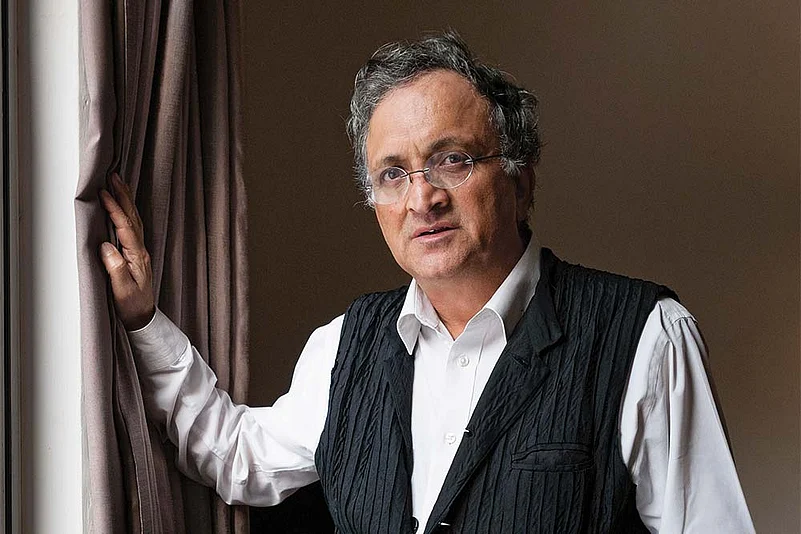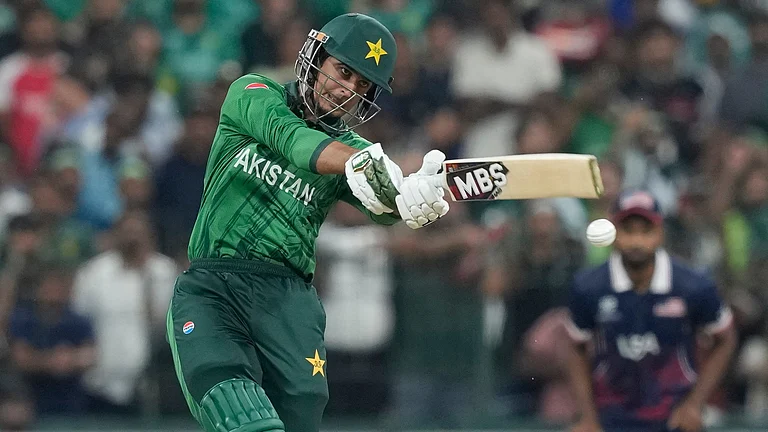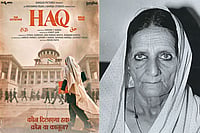A new book by Ramachandra Guha, one of India’s foremost public intellectuals, always causes a flutter both in academia and among his many fans. Democrats and Dissenters is a collection of 16 essays, some previously published and a few new ones, that have a wide arc, ranging from profiles of Dharmanand Kosambi and Andre Beteille to Kashmir and right-wing politics. Satish Padmanabhan met Guha in Delhi to discuss the book. Excerpts from the conversation.
Democrats and Dissenters is the work of a classic public intellectual, who is interested in everything around him and has a considered opinion on them. But is this an endangered tribe today, where most public discourse seems to taking place on Twitter and FaceBook?
Well, I think Twitter and FaceBook are also valuable medium for enlarging the scope of debate and discussion, but it will be a great pity if quick, off-the-cuff, unconsidered remarks pass of for debate and discussion because I think we live in a complex society in turbulent and changing times. To understand that you need reflection, research and analysis, and to that extent I think a scholarly work for a general public—there are some scholars who only write for other scholars, which I respect—but since I work in a field which is relevant to Indian politics and society I would like my research to reach a wider audience. There are other people like that, Ashis Nandy is one, Andre Beteille is another, there were many distinguished people in the past, Amartya Sen is still active. So, in a sense it’s an important function a scholar should play which is to convey the research to a wider audience because historians and sociologists are not physicists and philosophers. Physicists and philosophers, unfortunately, to interact with the general public, they have to dumb down because their work involves complex technical language. But historian and sociologists deal with everyday life, everyday crisis and everyday controversies. That’s why I think a historian of the recent past has a responsibility to reach out to as wide as a citizenry as possible.
In India, we have always revered and listened to public intellectuals…
Revered, I won’t agree, but yes, we have listened to them, and sometimes talked back…
Sure, does that still happen?
Yes, I think so, if you look at the two younger historians I admire greatly, one is Srinath Raghavan who writes in the press. The other, who may not be so well known but is a remarkable person, is A. R. Venkatachalapathy who writes in both Tamil and English, who is the major translator and interpreter for Perumal Murugan today. He is a great scholar of modern Tamil history, he has written books on Subramania Bharti in English and in Tamil. He is someone who is profoundly influential in Tamil intellectual and political life, including the Sri Lankan diaspora. So he is influential among 80 million Tamils and since he writes 70 per cent in Tamil and 30 per cent in English he is not that well known. But in Indian language you will find many intellectuals who are more active than in English. Like Partha Chatterjee in Calcutta who writes in Bengali and in English. It has gone on since the days of the 19th century, from Bankim and Tagore onwards, and many scholars do engage with the public. Amitav Ghosh’s new book is a good example because he has taken a live public issue and brought in the sensibility of a novelist and litterateur to climate change, rather than write another novel.
Amitav Ghosh once remarked that Delhi is India’s most cosmopolitan city today, with a vibrant intellectual community. But you are scathing about the capital’s academia and are happy you left it 20 years ago...
(Laughs) It is true, he is right, it is very active, very alive. But it is also true there is an inter-penetration of the intellectual elite, the media elite and the political elite. It’s an incestuous relationship between these three because Delhi is the centre of media, political power and the universities. If you live too long in Delhi, you become inward-looking, you lose track of the rest of the country. I cherish the years I spent in Delhi, I come here for research, I have close friends here, I’ve written about Andre Beteille in the book who lives in Delhi. But I think distance from Delhi is very important particularly for someone commenting on public affairs. If you are entangled in too many networks then it’s a problem. In Bangalore I live almost a hermit’s life, when I go to Koshy’s most of the time I go alone or with close family. Moving to Bangalore was liberating for me. Delhi has a coterie of BJP-aligned intellectuals and journalists, a similar coterie aligned to the Congress, and even coterie of Naxalite-aligned intellectuals. Even anti-establishment is a coterie in Delhi!
The Bengali bhadralok is also not going to be very pleased with your essay on Amartya Sen, where you point out that Bengalis ‘travel a straight line between Calcutta and the West’.
Yes, that’s based partly on living among them. I did my PhD in Calcutta, my first job was there, I still write for The Telegraph, I know them intimately. I used to joke that every Bengali has two nationalities: Nirad Chaudhary was Bengali and British, Satyajit Ray Bengali and French, because he was influenced by the French directors, Charu Majumdar was Bengali and Chinese. But very few are Bengali and Indian. Tagore was different, he was certainly Bengali and Indian as he knew the country up close. Here, I am talking only about the intellectuals, the ordinary Bengali has travelled well and knows the country. But for Bengali intellectuals, they either take their cues from Tagore and Bankim, or from Marx and Hegel. Gandhi, Ambedkar, Nehru hardly figure for them. There is this sense that Bengal is the centre of the world and nothing else happens anywhere.
The line you are mentioning I wrote that in the context of a quote of a Bengali intellectual who thought Calcutta was the crucible of modernity in India but actually it was Pune. All the major anti-caste movements, the first great feminists, the great scientific popular writers were all in Pune.
How much have you worked on the previously published essays? Were you concerned that some of them may feel dated?
I’ve worked extensively on them, all have been updated and I have selected only the ones which cohere in this book. A long essay on Tagore and his politics had to be left out as I felt it didn’t fit in this book. Some of them like the one on Kashmir are as relevant today considering what’s going on there as it was when written seven or eight years ago. But yes, in a collection of essays of this nature there will always be people who will feel this one is relevant and that one is not.
It is refreshing to see a book dedicated to Koshy’s Café. But aren’t places for scholars, artists, thinkers to gather and ponder over things too is shrinking in our cities?
To some extent, yes. The role that Koshy’s plays in Bangalore is the role that College Street Coffee House played in Calcutta, Wayside Inn in Kala Ghoda, and Samovar played in Mumbai, the Indian Coffee House played in Delhi. Jurgen Habermas, the great German sociologist, when he talked about the public sphere in Europe, he said newspapers and coffee houses. It’s true even today, in coffee houses the conversation is informal, many ideas are developed. And Koshy’s is one part of Bangalore which has not changed much, I have known it for 50 years and I still go there twice a week. Some of the people I used to go with are unfortunately dead now, like D. R. Nagaraju, the great Kannada writer, P.K. Srinivasan, the editor of Deccan Herald. But it’s still a place for me for debates, conversations, arguments, so I thought I must dedicate this book to Koshy’s.
The essay published for the first time in this book, Eight Threats to Freedom of Speech in India, provokes the state to get rid of the archaic laws. Do you think anybody will listen in today’s political atmosphere?
You write to start a debate. If anyone reads the essay they will know India is freer than Pakistan or China but not as free as Canada or Sweden. Someone like me doesn’t write with an intention of affecting dramatic social change tomorrow. I have no such vanity or delusion that my writing will change the society. My writings open up a debate, catalyzing certain thoughts, putting a body of empirical evidence in front of the public for them to chew over. Though I write about politics I am not a political writer trying to bring about radical changes. I don’t have the illusion that my writings can influence public policy. Look, if I were to get rid of the First Amendment, I can’t do it, it will have to be taken up by a legal scholar, someone may file a case in court, there may be a debate on the jurisprudence of it.
In the lively debate between Nehru and Jayaprakash Narayan, JP tells Nehru the importance of the Opposition in Parliament. It must be depressing to see the stand-off between the government and the Opposition in the recent Lok Sabhas.
Yes, it is. Those days there was no active media, all the debate was in politics. The truth about India is in some ways we progress and some ways we regress. For instance, we have regressed in terms of freedom of expression but we have progressed in terms of individual freedoms. A girl in a city can chose whom she wants to marry; caste and occupation are not longer as intimately interwoven because of urbanization. The fact that political debate is deteriorating may be true world-wide, look at Donald Trump. It’s all name-calling and abuse rather than a reflection of how a democracy should function.
You have always found people who have fallen off the map—Verrier Elwin, Palwankar Baloo—and Dharmanand Kosambi in this book, perhaps the most moving essay. Is it sheer serendipity or…
I have always had an attraction for these kinds of people. The more I read about Dharmanand Kosambi I found how extraordinary he was, even more than his celebrated historian son D.D. Kosambi . He was the first great Buddhist thinker and he gave up his life in the search of Buddha. It was very moving to discover about him. I really recognize and respect old-fashioned scholarship, it has to be carried out every day for decades. I went for Professor Padmanabha Jaini’s (of University of California, Berkeley) lecture and he asked me, ‘You mentioned D. D. Kosambi but did you know about his father Dharmanand?’ The way he began telling me, I sensed that I was in the presence of a learned scholar who had spent a lifetime studying Buddhism and Jainism, that I should listen to him. So, a lot of things fall in place. I hope my essay will prompt someone to write a full-fledged biography of Dharmanand Kosambi. His life is so extraordinary, and so humbling. Here is a man who goes begging as a mendicant, travels in horrific conditions to reach Sri Lanka and Burma in search of knowledge, wanting to learn Pali, to know more about Buddha. Reading about this man, sitting in Bangalore thinking of my next trip to Delhi by air, to the air-conditioned rooms of the IIC, gives you an idea what a struggle for scholarship was for someone like him.
The last essay—about how there so few right-wing intellectuals and academics in India—how much does it actually impact the day-to-day political discourse?
It affects the quality of debate, public policy, reflection. I think if you only have ideologues or chauvinists driving your thinking, then it’s a huge problem. For all its faults, the Congress respected research, science, scientist, scholars. Of course it was nepotistic, it had its own coterie of sycophants and loyalists, but from Nehru, through Indira Gandhi to Rajiv Gandhi, they respected scholars. Vajpayee did too. But I think now they have reached a stage where there is contempt for scholars. The abuse I would get, for instance, is ‘Who is this Guha who has written a few books, what has he contributed, has he built Wipro, has he built Infosys, why do we need him, has he built a nuclear missile to nuke Pakistan?’ This is their attitude, they think researchers and scholars are dispensable. They think filmmakers, artists who probe the limits of creativity are not important. It is a philistine government.
That sounds quite ominous. How will the days ahead…
I think there will be a push back. I think many young people who voted for the BJP are already disenchanted because this is not what they voted for. I think it is to do with the excessive control of the RSS that it exercises at present. They will soon recognize the folly of this kind of policy.
A shorter, edited version of this appears in print



























